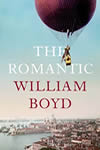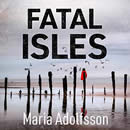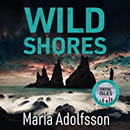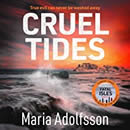« See How They Run | Main | The Lost King »
Friday September 30, 2022
Books in September
-
The Romantic by William Boyd
 There's no doubt Boyd is a master story-teller - but he distinguishes himself from others by being an excellent writer to boot. Here we have a wonderful story, splendidly written, and illustrating why he has been described by some as the finest storyteller of his generation.
There's no doubt Boyd is a master story-teller - but he distinguishes himself from others by being an excellent writer to boot. Here we have a wonderful story, splendidly written, and illustrating why he has been described by some as the finest storyteller of his generation.
"The Romantic" is written in a style he has employed previously, being a whole-life biography, apparently gathered from historical source material, giving him the scope to use a variety of historical backdrops, while his protagonist, Cashel Greville Ross, is pulled in many different directions, both emotionally and geographically. The "source material" is fictional, but very convincing, in similar vein to Boyd's famous 1990s hoax biography of an "underrated" post-war artist [see note*]. In this story, however, we are transported through 19th century Europe, India, and the Americas, as Cashel's, adventures appear to be driven entirely by apparently random external events rather than by his own choosing. This calls to mind previous comparisons with some of Evelyn Waugh's heroes, but in this case perhaps more like Amis' "Lucky Jim", where despite equal shares of good and bad luck, he manages to deal with success as well as reversals of fortune, coming out, if not actually "on top", perhaps better than he might have expected.
Although Cashel is swayed by his passions for several women - and one in particular haunts him to the end - I would not entirely describe him a romantic in that way. He is a romantic in that he seizes on each unlikely opportunity that life offers with total commitment, where other men might take a "once bitten twice shy" approach. The resulting exploits are indeed romantic, covering the Battle of Waterloo, sojourns in Italy with the "romantic" poets (Shelley and Byron), a safari to find the source of the Nile, and, perhaps less romantically, an enforced period in a debtors prison in London.
* Note: The way this hoax was perpetrated, moving a total fiction into reality - with some people even claiming to have met the artist and seen a retrospective exhibition of his work - reminds me of Hilary Mantel, whose untimely death was announced this month. She had a number of well-made points in her 2017 Reith Lectures on the subject of "History" and so-called historical fact:
Once we can no longer speak for ourselves, we are interpreted. When we remember, we don't reproduce the past, we create it.
Evidence is always partial. Facts are not truth, though they are part of it -- information is not knowledge. And history is not the past -- it is the method we have evolved of organizing our ignorance of the past. It's the record of what's left on the record. - Fatal Isles, Wild Shores, and Cruel Tides by Maria Adolfsson [Read by Hattie Ladbury]
This is a relatively new book series, translated from Swedish, featuring DI Karen Eiken Hornby, who has returned to her native island home after a period working in England. She has her demons, which seems de rigeur for every fictional detective in order to provide additional background interest, but in this case it goes beyond the usual hackneyed tropes of the genre. Her history has left her traumatised, informing her life in the present, but not dished up to us in one emotional dollop. Rather the mystery story definitely takes centre stage - as it should.
And they are remarkably good mystery stories, which reinforce the appeal of the "cold case" without actually following that format. Here the answer to a couple of very modern murders lies in the past, and the solutions will definitely keep you guessing. They also have thrilling endings where you truly experience the fear as Karen realises she is finally facing a killer.
And - a word on Karen's "native island home" - which is "Doggerland". I have to confess I read two books without actually taking in that these islands are in fact fictional. I know - but as I am used to being deemed poor at geography, I would not think it unusual that I had not heard of some small Scandinavian islands, which I imagined to be like the Faroes. In fact they are rather bigger, being based on the submerged prehistoric land bridge, the remains of which form the "Dogger Bank" somewhere in the North Sea.I have read the first two of the series, and looking forward to the third which is available this month. I also note with keen anticipation there seem to be one or two more in the wings awaiting translation.



Posted by Christina at 6:36 PM. Category: Books of the Month
